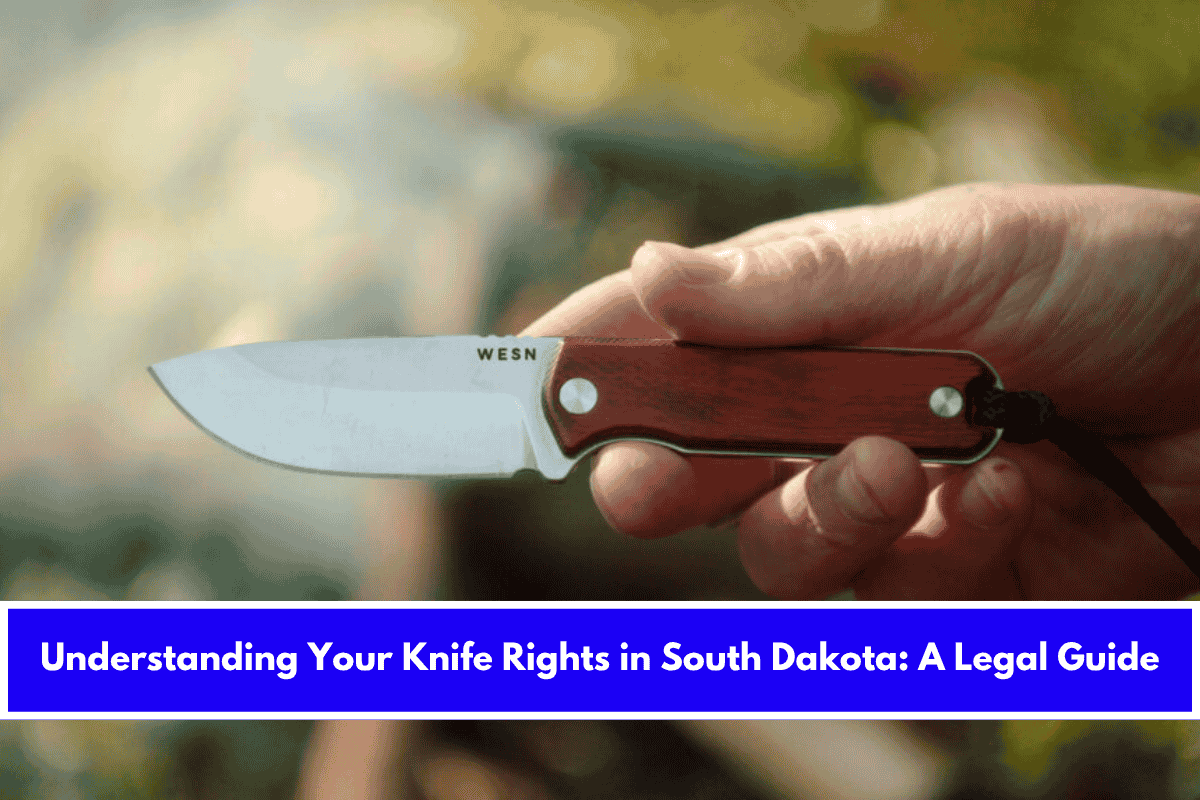South Dakota is known for its permissive approach to knife ownership and carry. The state does not restrict specific types of knives or set blade length limits for most situations. Knives are broadly defined as any instrument with a blade that can be used for cutting or stabbing, covering everything from pocket knives to larger blades like machetes and swords.
Legal Possession and Carry
- Open Carry: It is legal to openly carry any type of knife in South Dakota, regardless of blade length or locking mechanism.
- Concealed Carry: There are no statewide restrictions on carrying knives concealed, unless you do so with the intent to commit a felony.
- Intent Matters: The law prohibits carrying any knife (concealed or not) if you intend to use it to commit a crime or harm someone. Simply possessing a knife is not a crime, but using it unlawfully can lead to serious charges.
Restricted Locations
- Schools and Government Buildings: It is illegal to possess a knife (or any dangerous weapon) on public school property or in county courthouses and the state capitol. Violations can result in misdemeanor charges.
- Other Sensitive Areas: Always check for posted signs or local rules, as some private properties and specific public places may prohibit knives.
Local Ordinances
- City and County Rules: While state law is permissive, some cities and counties have their own ordinances. For example:
- Rapid City: Concealed carry of knives with blades over 3 inches is prohibited.
- Sioux Falls, Aberdeen, Sturgis: These cities also have restrictions on concealed knife carry.
- Deadwood: Unconcealed carry of knives is restricted in certain areas.
- Check Local Laws: Always verify the knife laws of the specific city or county you are in, as local ordinances can be stricter than state law.
Age Restrictions and Sales
- No State Age Limit: South Dakota does not set a minimum age for owning or carrying knives, though federal law prohibits selling certain knives to minors.
- Parental Supervision: Minors are advised to use knives under adult supervision.
Penalties for Violations
- Crime-Related Use: Using a knife in the commission of a crime can result in aggravated assault, attempted murder, or other serious charges.
- School and Courthouse Violations: Carrying a knife in prohibited areas can result in misdemeanor charges, fines, and possible jail time.
Summary Table
| Situation | Legal? | Notes/Exceptions |
|---|---|---|
| Open carry of any knife | Yes | No blade length or type restrictions |
| Concealed carry of any knife | Yes (statewide) | Not if intent to commit a felony |
| Carry in schools/courthouses | No | Misdemeanor if violated |
| Local restrictions (e.g., Rapid City) | Varies | Check city/county ordinances |
| Age to carry/buy knives | No state minimum | Federal law restricts sales to minors |
Practical Tips
- Know the Law: Stay informed about both state and local knife regulations.
- Check Local Ordinances: Always review the rules of the city or county you are in.
- Be Mindful of Intent: Never carry a knife with the intent to commit a crime or harm others.
- Avoid Restricted Areas: Do not bring knives into schools, courthouses, or other prohibited locations.
- Seek Legal Advice: If you have questions or face legal issues, consult a qualified attorney.
South Dakota’s knife laws are among the most lenient in the nation, but always exercise caution and responsibility to ensure you stay on the right side of the law.
Sources:
- https://www.akti.org/state-knife-laws/south-dakota/
- https://bpl.co.uk/south-dakota-knife-laws-a-comprehensive-guide/
- https://knifeade.com/south-dakota-knife-law/
- https://knifeup.com/south-dakota-knife-laws/











Leave a Reply